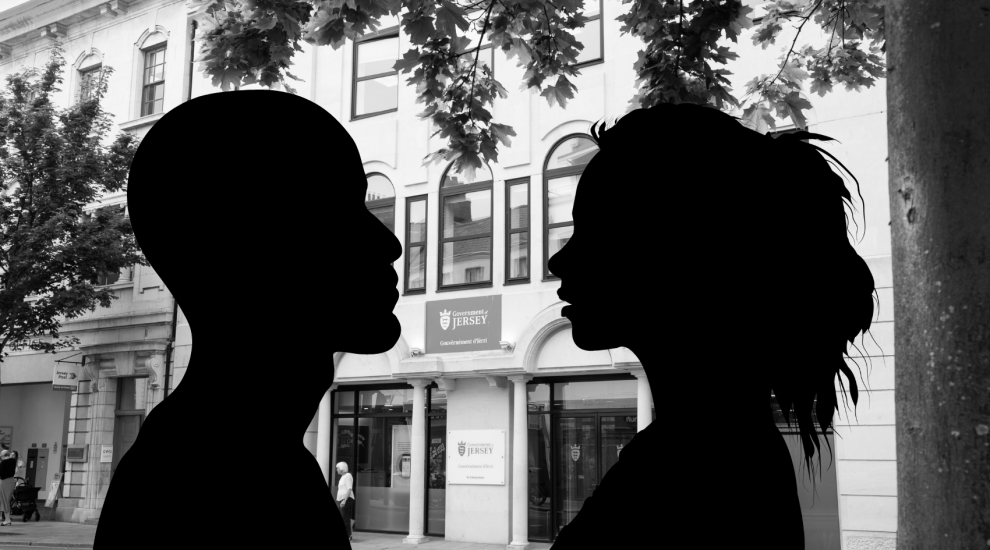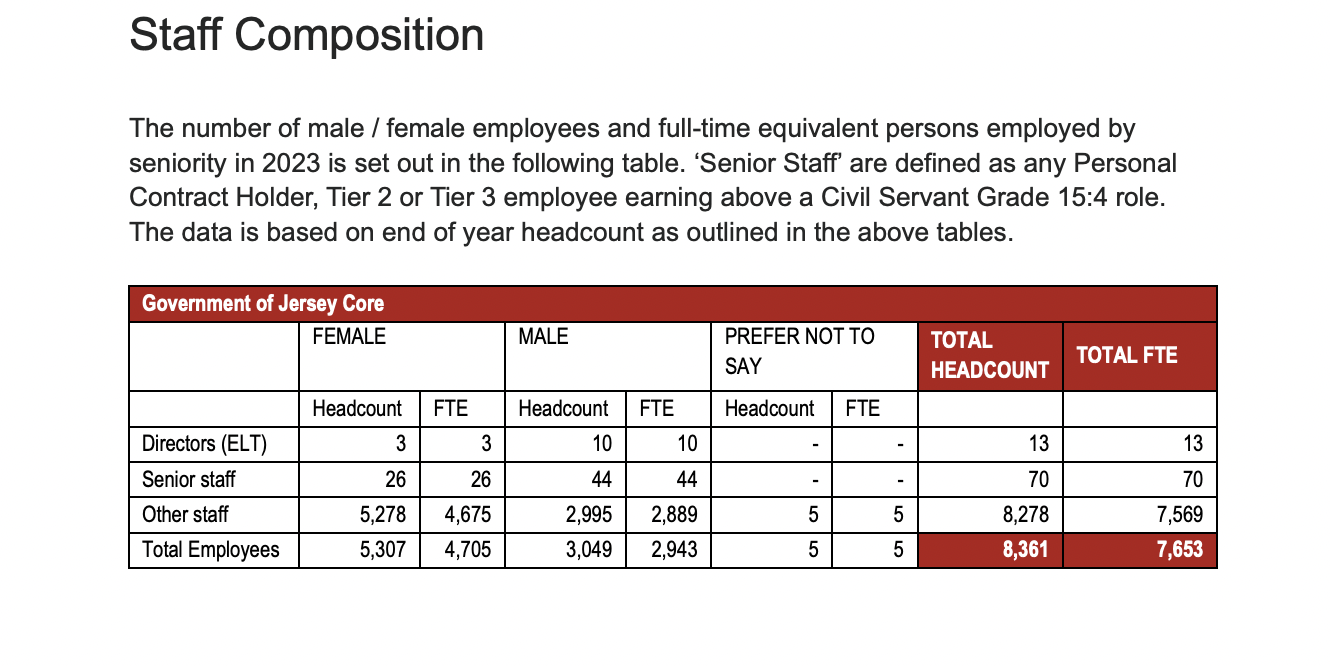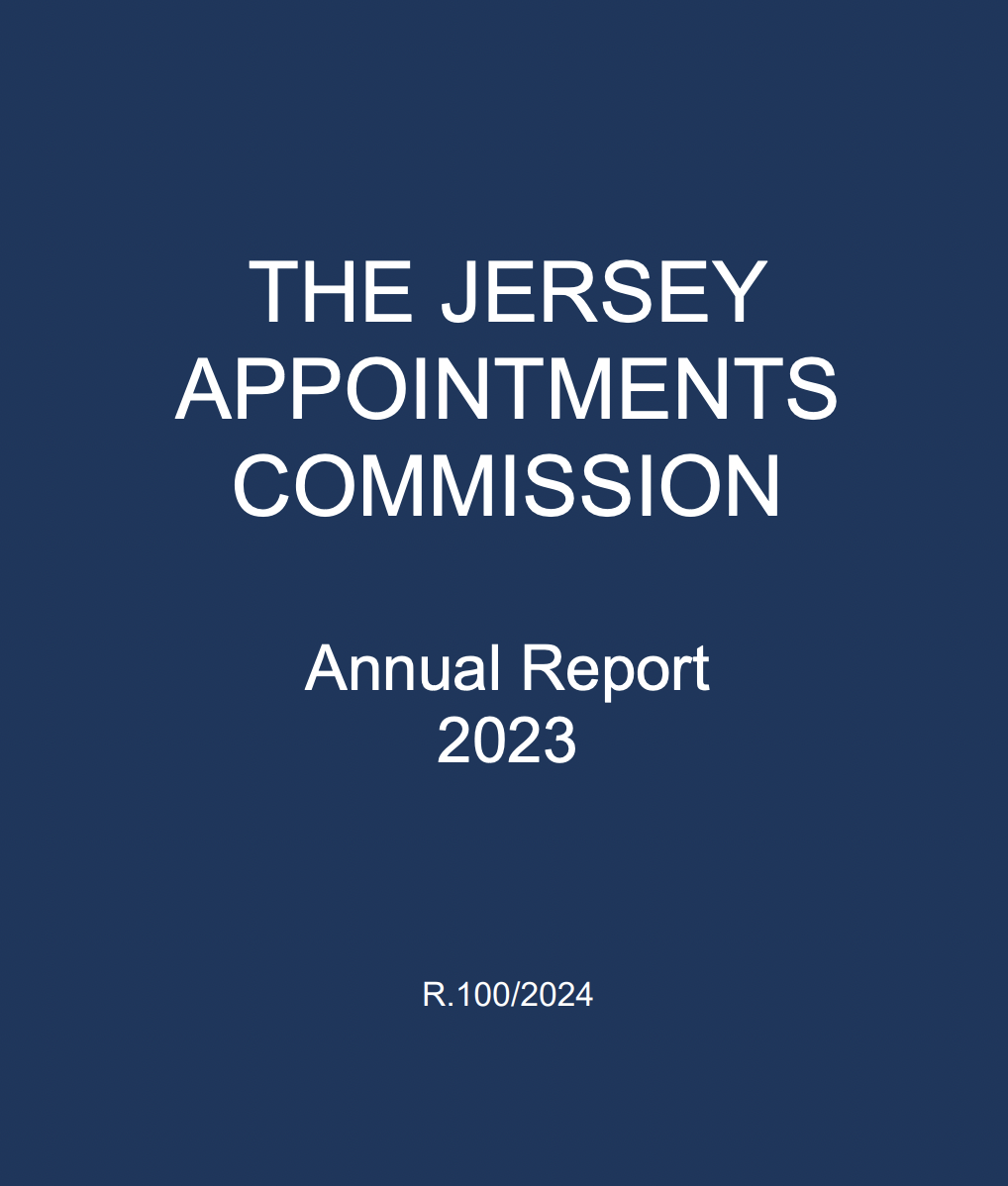


Women may make up nearly two thirds of the Government's workforce, but men take up three quarters of the seats at the very top table, new stats have shown.
The gender breakdown features in the recently published States of Jersey 2023 Annual Report and Accounts, which showed a that the trend of women being under-represented in senior positions in Jersey's public sector continues.
Female employees account for 64% of the Government's 8,300-strong workforce.
But the proportion of female employees declines significantly for more senior, higher-paid positions.
Women occupy just 37% of senior staff positions, and even fewer – 23% – at Director-level.
The report said that there are just three female Directors in the Government's Executive Leadership Team – in contrast to 10 men in Director roles.

Pictured: The 2023 Annual Report revealed that three out of 13 government directors were women.
The stats were a slight improvement on four years ago when the proportion of women at the very top table was one in five.
The report also said that there were 26 women who occupied "senior staff roles", compared to 44 men.
It follows a report published at the end of last year which showed that average hourly earnings for men working in the public sector were 15% higher than women last year – up from 12.4% in 2021.
Recruitment for top-level roles is overseen by a body called the Jersey Appointments Commission, which wants to see work done to address the imbalance.
Last year, it was involved in 48 recruitment assignments – 26 of which were for the Government of Jersey.
Their recently published Annual Report for 2023 showed that 69% of applicants in the recruitment processes they oversaw were male compared to 31% female – but that the proportion of female applicants at final interview stage was 43%, and that women made up just over half of those finally appointed.
According to the Commission, which is chaired by Chris Stephenson, the Government's current recruitment processes often fail to produce both the "breadth of diversity" and the "depth of quality" in the island – something described as a "source of concern".
A "lack of gender equality and diverse backgrounds/perspectives" on appointment panels was highlighted as a key risk by the panel, who noted that this could impact the ability to ensure balanced outcomes and the best recruitment decisions.
To address this, the JAC suggested that employers should use diverse recruitment panels, hold accessible interviews, and provide high-quality recruitment training for individuals involved in the hiring process.
The JAC also said "addressing under-representation of local minority communities should be a priority for the public sector in its diversity and inclusion strategies".
This, they said, was especially vital, "given the significant skills shortages and focus on the inclusion of local talent in recruitment and selection processes".

Pictured: "It is a continuing source of concern to the Commission that selection processes do not produce both the breadth of diversity and the depth of quality within the island."
In his foreword to the report, Mr Stephenson called for a "culture of inclusion and diversity" to allow all communities to compete for senior roles within the civil and wider public service.
Elsewhere in the report, the JAC raised concerns about "political interference" in recruitment processes.
The JAC said there had been "an increased desire for political involvement in some selection decisions especially regarding the HCS Board".
The JAC cautioned that while it is a "ministerial prerogative to decline a recommendation", doing so "may extend the process and have some negative implications for future recruitment exercises".
The report reminded politicians that "it is inappropriate to be part of the selection process except where specifically defined in Law".
EXPLAINED: Why are women continuing to earn on average less than men in the public service? (2023)
Female Government workers earning less than male counterparts (2021)
One in five top government roles held by women (2020)
£70k consultant to help create "gender sensitive" government (2020)
Government looks to 'blind CVs' to encourage diversity (2019)
Comments
Comments on this story express the views of the commentator only, not Bailiwick Publishing. We are unable to guarantee the accuracy of any of those comments.